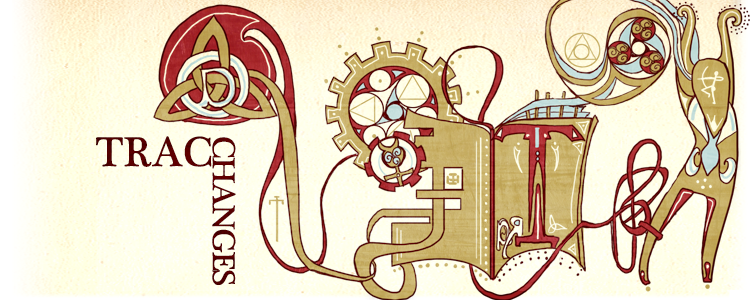I’ve been pondering this topic lately because I finally read
Bridge to Terabithia over Thanksgiving (I know, I know,
just now!? But I had a bit of a one-track mind as a child, and because of it I missed out on a lot of great books the first time around. Fortunately, I get to relive childhood constantly as an intern, and hopefully one day as an editor). It's something I consider often, because as a teen I gravitated towards dark books, and as an adult I continue to find I admire authors who very truthfully convey sadness. Meg Rosoff's
How I Live Now is one of the most devastating books I know, but it nonetheless is one of my very favorites. As a child, I recall crying through
Where the Red Fern Grows and parts of
Island of the Blue Dolphins. Heck, I even cried as an adult during the last three
Harry Potter books.
However, the seeds of this post were actually sown several months ago. I had just spent the greater part of the morning curled up in an armchair, soaking up the perfectly whimsical ninth-floor view of the city and reading a manuscript. My supervisor was out for a few days, but she had left two neatly bound copies of a manuscript for my fellow intern and I to review. The two of us had fallen into a comfortable routine by then, and when 11:00 a.m. came around and I started to feel caffeine withdrawal, Sam was usually rounding the corner, asking if I was ready for a tea run.
Still, I believe the two of us were late for tea that day, too immersed in the story’s gentle lyricism to pull away, and when we finally trekked up to the cafeteria we were bursting with ideas we just had to discuss. We loved the manuscript; we saw so many possibilities; we couldn’t wait for the editorial discussion and for rounds of revisions. Sam and I agreed on many of its finest points, and on many of the places where it needed strengthening.
But while I emptied a packet of sweetener into my empty mug, Sam mentioned something that surprised me: “I wonder,” she said, “if this chapter isn’t too sad for children.”
She had a point; the chapter included some moments that were almost horrifyingly bleak -- moments that showed characters at their worst, with no hope to go on. Of course, I had found the chapter sad -- heartbreaking, even. But I also found it beautifully written and terribly true to life. In fact, I had admired how well the author had captured the many ways in which broken people confront sorrow. I had never thought that it might be too sad for children.
And really, what it comes down to is this: I don’t know if I think “too sad for children” exists. Because in real life, every child deals with sorrow. And some children deal with the sort of breathtaking sorrow that we’d hide from them forever, if there were any way we could.
Children’s literature serves so many purposes. Sometimes it constructs elaborate fantasy worlds in which we wrap our children up, protecting them from the evils that we can’t hide in our own world. Sometimes it instructs or encourages children to dream and create, to push the boundaries of their imaginations. Sometimes it offers a safe way for children to experience danger through someone else’s eyes. Sometimes it reassures children that the world is a good and proper place. And sometimes -- in my opinion, some of the most important times -- it shows children that they are not alone, and that no feeling lasts forever.
If there were no children who missed a parent or a sibling or a friend; no children who struggled to gain the love of those who should give it freely; and none who faltered time and time again while trying to find their place in the world, perhaps we would need no sad literature for children. But those children do exist, and they need to be able to find themselves in books. They need to be free to open a book and meet a character who hurts for all the same reasons that they do. And they need to be able to follow that character through the healing process -- to see that they won’t have to hurt forever, that even after all that awful sorrow, there is some joy left in the world.
The manuscript I read that day and Bridge to Terabithia, How I Live Now, Where the Red Fern Grows, and countless other phenomenal books for children and young adults, ultimately tell a story about one of literature’s most powerful emotions: hope. And I applaud them for tackling the depths of sorrow they have to confront in order to tell that story; I hope children experience them deeply and come out of them with a better understanding of life and its many battles.
Let's not aim to keep children from journeying into dark places; rather, let's send them there -- all in order to show them the way out into the sun.







